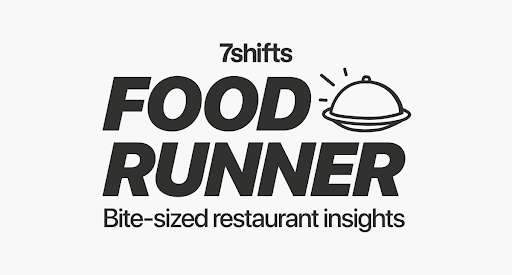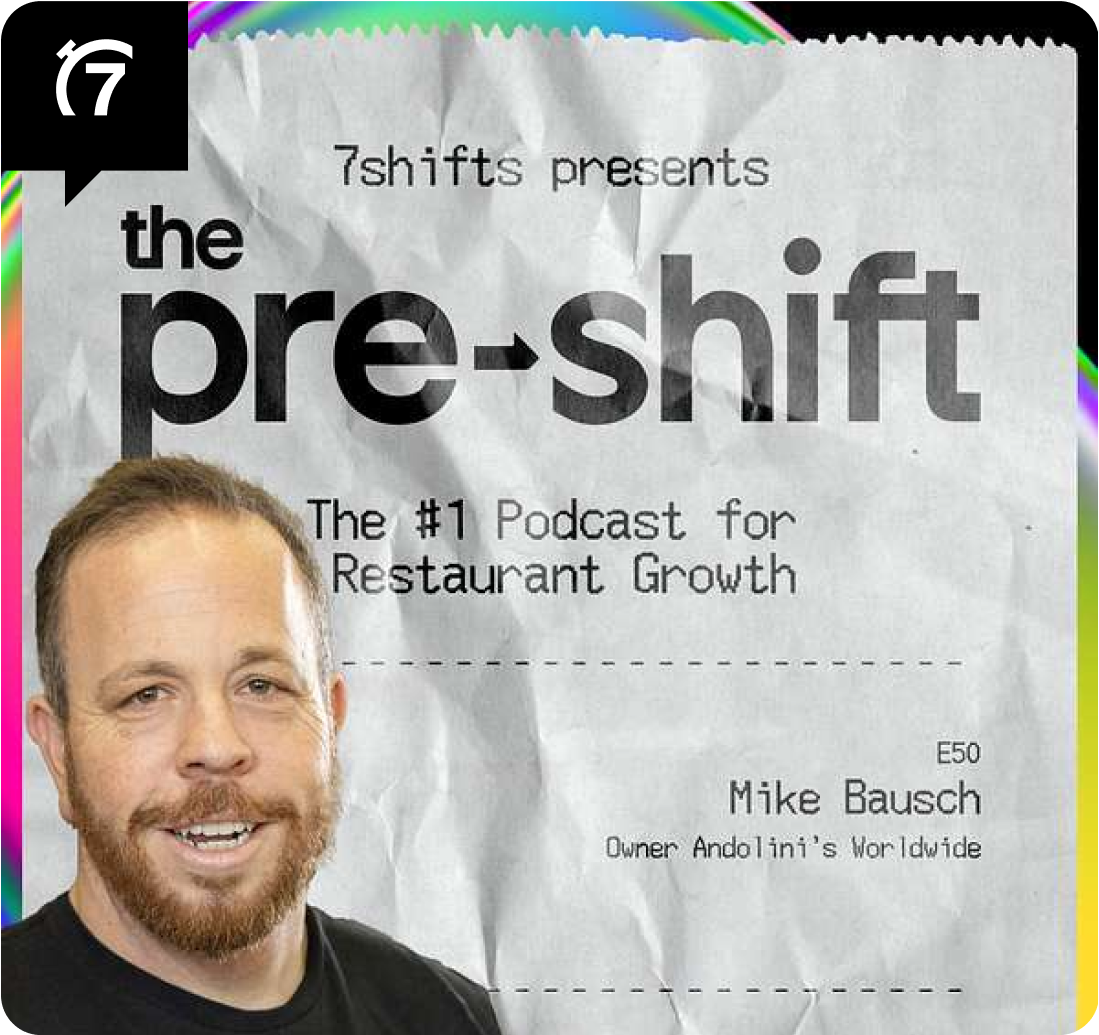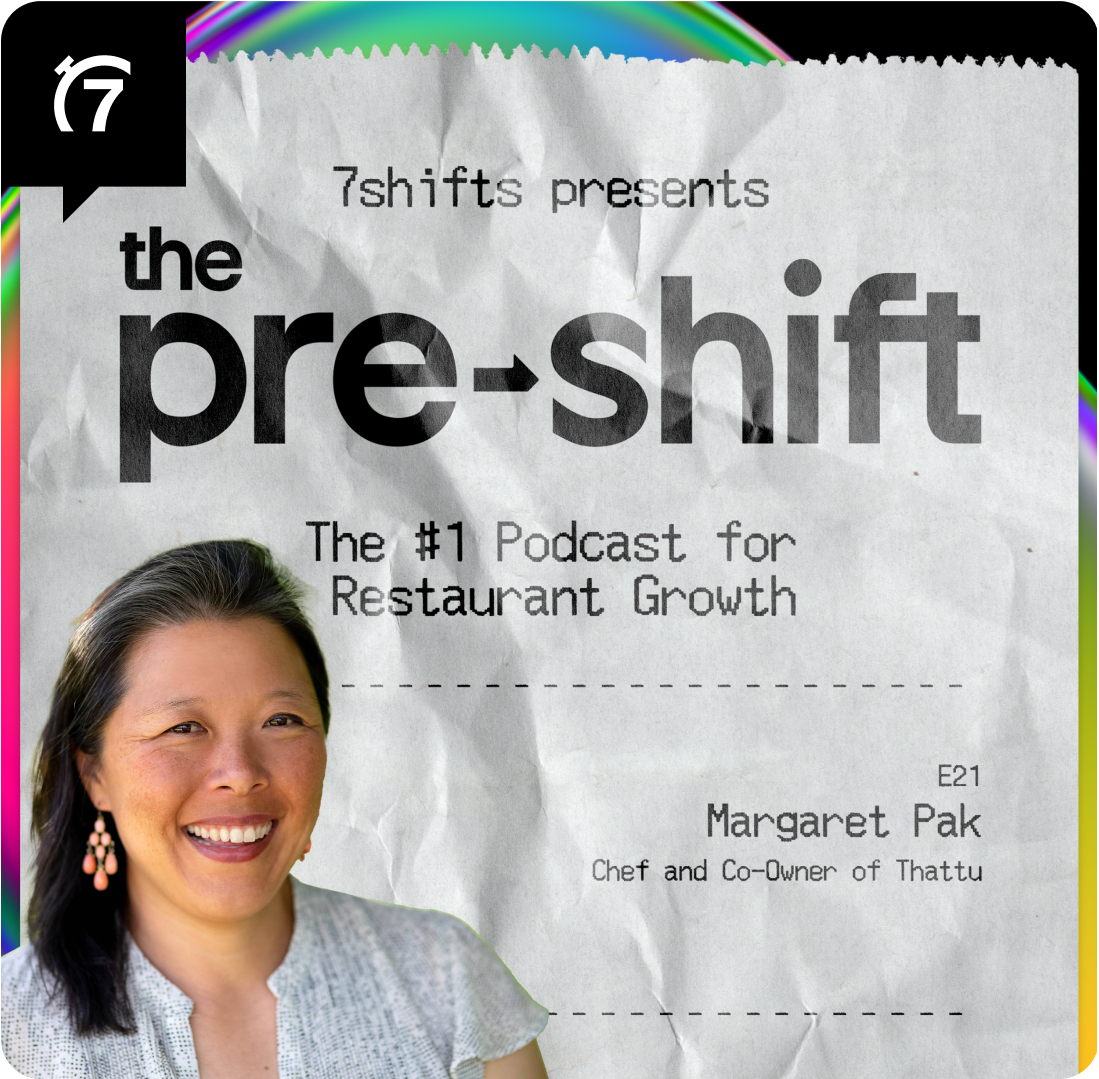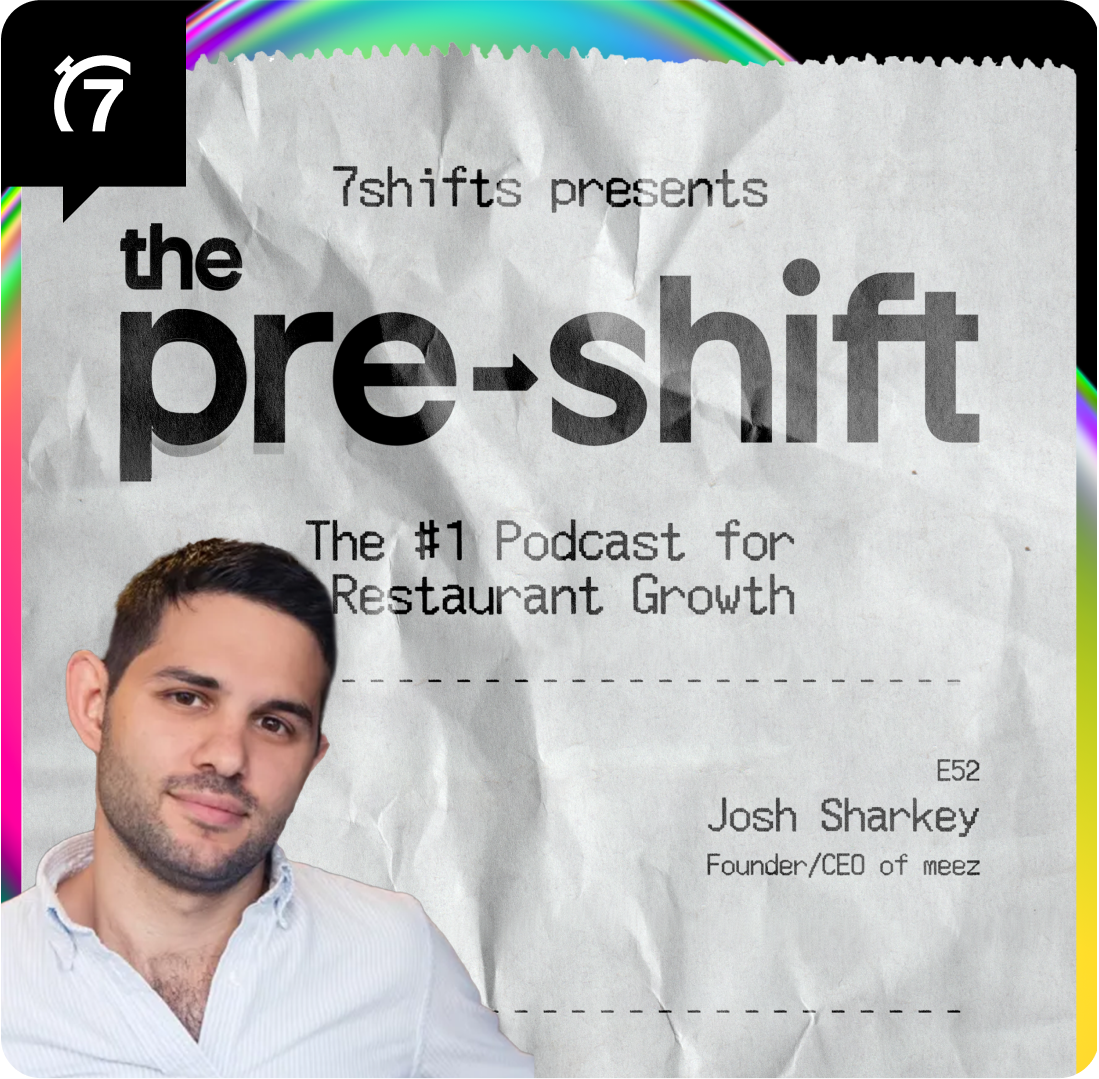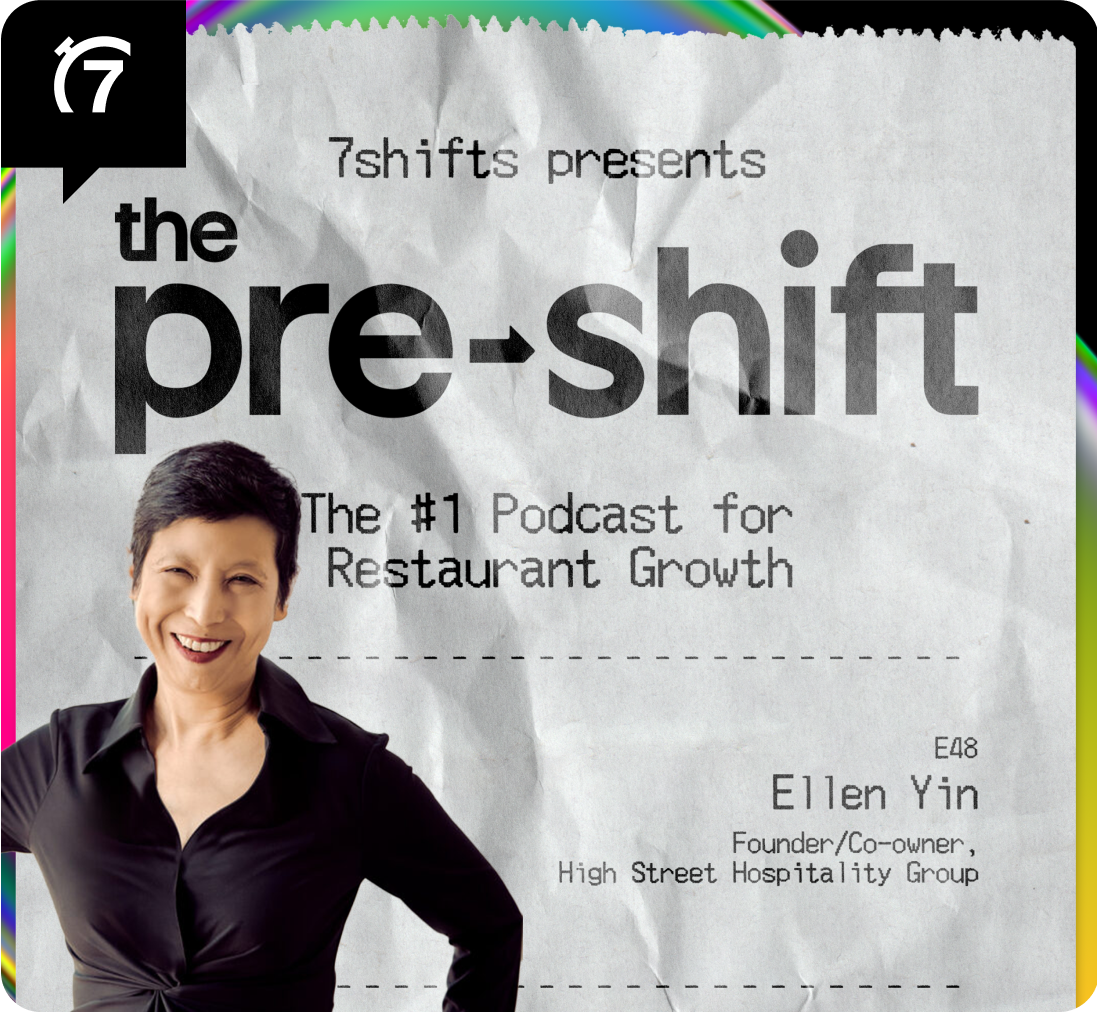|
|
|
In this edition, we’re sharing some love for the #1 podcast for restaurant growth, the Pre-Shift. Presented by 7shifts, it’s where restaurant operators and industry experts dive into what it takes to build great restaurant teams. Cue the stories, strategies, and valuable lessons!
|
|
|
|
 |
Should your team be your “family”? |
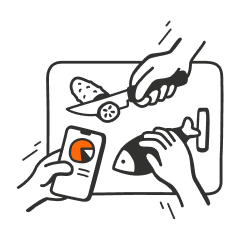 |
Do you *actually* know your food costs? |
 |
How recruiting has changed… big time |
|
|
|
|
Bad news: we don’t have Sean Evans or Matty Matheson (yet). Good news: we have the next best thing (zero bias here) with D.J. Costantino asking hot questions to four seasoned restaurant pros. Read (or listen) on for insights!
|
|
 |
IN THE NEWS
|
|
Are DIY mobile apps the next big tech tool?
Both DoorDash and Toast are launching new DIY mobile app capabilities that let operators plug in their brand colors and logos and spit out a first-party app. They’re aimed at emerging operators fighting for a piece of virtual real estate on consumers’ phones.
|
|
 |
HEARD!
|
|
|
|
|
Mike Bausch is the mastermind behind Andolini’s Worldwide, a 12-restaurant empire in Tulsa, Oklahoma. Andolini’s has earned nationwide top 10 pizzeria nods from TripAdvisor, BuzzFeed, CNN, and USA Today. In this episode, Mike outlines his leadership and staff training techniques. He discusses becoming a mentor through his Unsliced Restaurant System. Mike offers insights for maintaining low attrition rates and the importance of structured employee evaluations.
On how to cross-train between restaurant concepts
“[Our] overarching mentality about staff is that people don’t want to suck. And if you can provide them that path, they will do great. A lot of times people aren’t provided the path and owners are disenfranchised, like these kids don’t care and they don’t understand. I’m like well, have you given them a path to care? Coming from the Marine Corps, you see these 18 year olds can be effective when there’s motivation behind it. And they ain’t doing it for the money. They’re doing it for the ideological hey, I want to be better than myself. I want to win. And when you can key into that, this job is just a lot easier and it’s not so much a job anymore. I think that’s what a lot of restaurant owners fail to realize, you know, having core values, having what you stand for, having them understand that this is a team, not a family. You don’t work for me, you work for Andolini’s.”
On why he doesn’t refer to his team as family
“I think there’s a few problems with the word family. Are you going to fire a member of your family? Working with family could either be great or horrible. If they’re like, what are you going to do? You’re going to fire me? That’s bad when people are like, hey, I’d do anything for you. But again, going back to the military, you act like you’re Band of Brothers per se. You would die for each other, but you’re also aware that you are not blood. You are aware that hey if one person’s not cutting the mustard, they’re off the team straight up. We’re all going to work our ass off for each other, but you’ve got to pull your weight… loyalty starts to go towards each other rather than the customer.”
Listen to the full episode
|
|
|
|
This episode features Margaret Pak, chef and co-owner of Thattu in Chicago. Margaret shares her inspiring transition from corporate life to culinary arts, detailing her journey from selling spicy ketchup to opening a successful food stall and finally establishing an award-winning restaurant. Margaret also discusses the significance of transparent menu pricing, equitable staff wages, and her future plans.
On why she chose a no tips, no service charge model
“We just want to be fully transparent to the customer. You literally see what you’re ordering. The only thing hiding is the tax amount and maybe it’s different because you’re buying alcohol. That’s it. In terms of having fair pay between our entire team, both in the kitchen and in the front, we do something different where we have a base rate plus a revenue share. So every two weeks [we do] all these calculations, what is our actual revenue, and then split that based on hours worked with the entire team. Revenue is both food, alcohol, events, catering, off-sites, etc.”
On having an open-book policy
“From an overall standpoint from our small business, it’s really important that we have an open book policy. So, as [my partner] does the financials every quarter, we literally open it up. He does the analysis and shares it with the entire team. Some of it’s a little information overload, but we literally want our whole team to know. Where is this money coming from? What are we selling? Yes, we’re selling all these things, but where is that going?”
On advice for those exploring alternative wage models
“Know your concept, what you’re creating, but think about who is your customer and then, what customer do you want to attract? The organizations One Fair Wage, and Raise High Roads… those were the first two that we found and we still go back. At the core of it, just doing what feels right for your business model, for your customers, I think that’s the biggest thing… if it doesn’t work, pivot. We thought at the beginning we were going to be a counter service. A week into it we’re like, nope, we’re not. We need to take reservations. So those are the two things. Reach out, look for organizations and restaurants or reach out to us, and if something doesn’t work, then change it and keep going.”
Listen to the full episode
|
|
|
|
|
|
This episode features Josh Sharkey, the founder and CEO of meez, an innovative recipe tool and culinary operating system. Josh shares his journey from a Michelin-starred chef to a tech entrepreneur. Josh elaborates on the challenges transitioning to tech, the features of meez that enhance operational efficiency, and how it serves chefs and restaurant operators in maintaining consistency and profitability.
On the importance of understanding your food costs
“There’s purchase data, there’s sales mix data, and there’s recipe data. And pretty much every software on the back of house has solved for purchase data and sales mix data, right? Like pulling in your menu sales from a POS and then pulling in your purchases from your vendor or from scans or EDI. And there’s still challenges there that you have to solve for, right? How do you normalize the purchase units to the recipe units, things like that. But if you only have those two things, you don’t really have a clear picture of what your benchmark food cost should be. If you don’t have that benchmark, if you don’t have the recipe data tied to the menu sales, then you don’t really know what you should have as a food cost. You can see what you actually have as a food cost for the most part. It might be a little bit skewed if you don’t have the recipe data as well, but if you don’t have the recipe data, it’s very hard to understand. Like I should be at a 20% food cost because that’s really important if you’re actually at a 24% food cost. And maybe 24% sounds really good. But if you knew that you should be at a 20% and there’s a 4% delta, for every million bucks you’re doing, it’s $40,000 you’re losing. It adds up quick.”
On how to pick your team’s tech tools
“I’ve had to buy a lot of software for restaurants and the question you always have to ask is will this be a tool that will require my team in order to be successful? Or will this be something that my team will require to be successful? Does the tool rely on the team or does the team rely on the tool? And that’s the most important part of anything you’re going to give to folks because if they have to do all this work and it’s a chore for them, then they’re not going to be super happy.”
Listen to the full episode
|
|
|
|
Ellen Yin is the founder and co-owner of High Street Hospitality Group, which operates some of the country’s most celebrated dining establishments. Ellen is a graduate of the Wharton School and was honored with the Philadelphia Business Journal’s Women of Distinction Award in 2020. In 2023, she was awarded Outstanding Restauranteur by the James Beard Foundation. She discusses the importance of cultivating a sense of belonging, community, and a strong team culture within her restaurants. Ellen discusses strategies for employee recruitment, training, and career development.
On the art of recruiting
“I remember when people would just come to you with their resumes and we would have thousands that we would be collecting. Right now, what we’re doing is making sure that our posts tell a story about who we are and what we’re looking for and the values that we’re trying to maintain and develop. And the things that we can offer to team members, such as insurance, 401(k), employee benefit things. But also that we’re committed to career development. And we’ve had to change our strategy after the pandemic to look in places where we might not have traditionally looked. It used to be Craigslist, maybe now it’s Culinary Agents. It used to be CIA. Now other types of school programs. One thing I’m really interested in… is how do we figure out the gap between where they graduate and where we need them to be when they first start. And then make that part of the orientation and onboarding process… High Street Hospitality boot camp or something like that… where we’re really bridging the gap so that we can create a more diverse workforce that has more depth than just the people that we’re always used to bringing.”
On approaching employee development
“In addition to having a baseline when the person starts, maybe you never thought that you wanted to be a chef, but after being a server or being an expediter, you suddenly feel this interest sparking in you. We’re going to try to figure out how to ignite that and create opportunities for you that would enable you to see if that’s really what you truly want. I don’t think that there’s any one pathway for everybody. So first, of course, employee training for each basic job. The outline is clear, accountable and measurable. Secondly, trying new things like the NRA has a new training apprenticeship program. If somebody says they want to become a more proficient kitchen manager, we can provide access to that. Also management training. It’s really important because to go from being a line cook to a sous chef, sometimes people just say, you’re promoted. And what that job really entails isn’t clear. And so trying to get people to understand what the job is before you get promoted into it. Then you can hit the ground running versus trying to figure it out during your initial phase.”
On the biggest obstacle to an effective work culture
“I think that sometimes if you have one person who is considered toxic and you don’t fire them or change that situation in a timely manner, it can really devastate your culture. We’re also just restaurateurs, and team leaders are human beings as well. And if they’re not well rested and not nourishing themselves, it can be really hard to maintain that culture because you need stamina, you need grit, you need all those things to make it for the long haul.
You also have to give yourself a break and be refreshed and look at things with a clean perspective. If you don’t take time off or you don’t try to keep your personal life full and make time for yourself, it can be really easy to experience burnout.”
Listen to the full episode
|
|
|
 |
À LA CARTE
|
|
🎥 Free video mini-course: Unlocking Effortless Restaurant Scheduling
Discover how seamless scheduling can transform your restaurant’s operations with our free video mini-course. Explore the power of automation and see how easy it is to transition from manual scheduling to a streamlined process.
📖 Read: Ultimate Guide To Restaurant Cost Of Goods Sold in 2024
|
|
|
|
